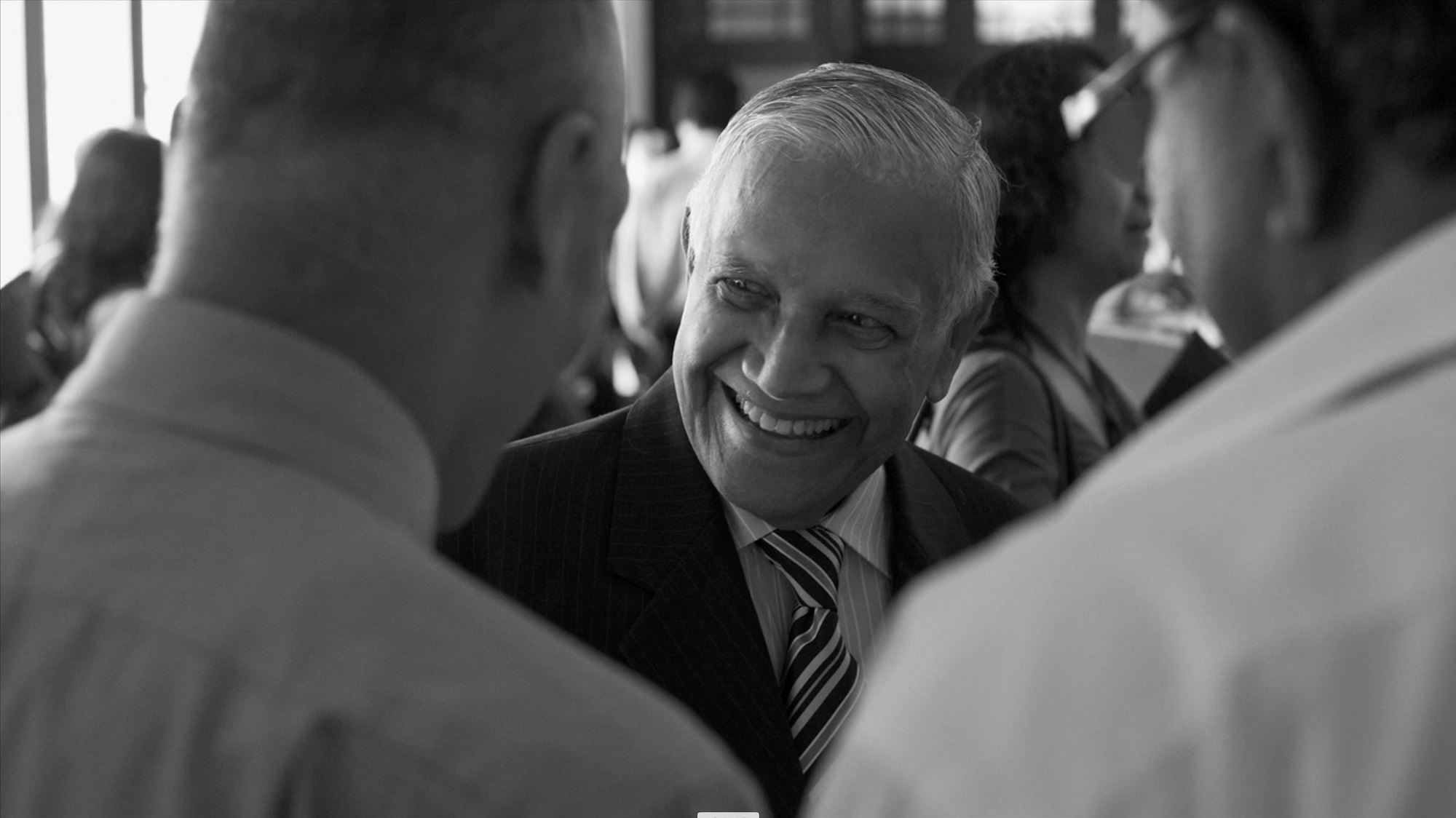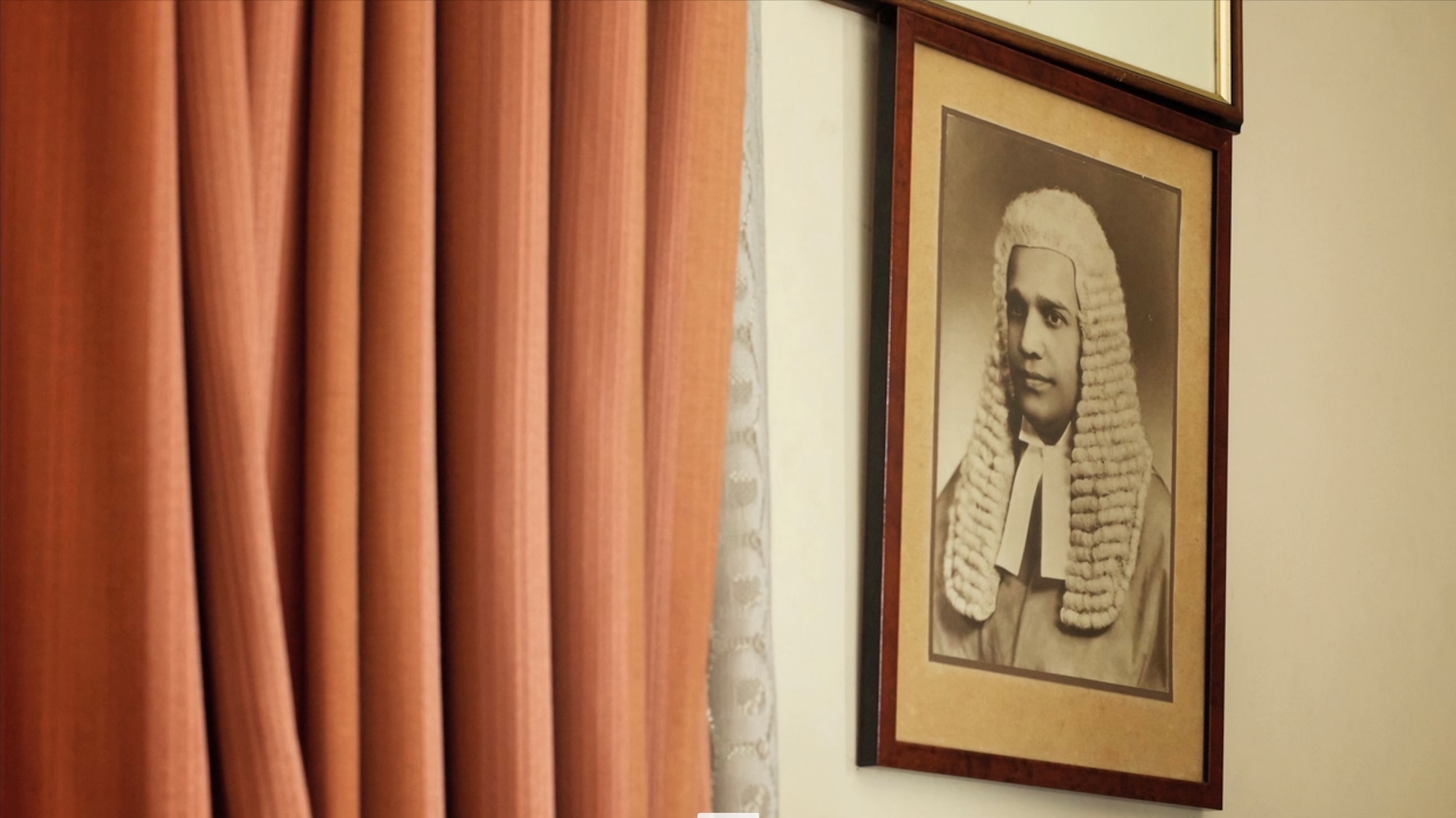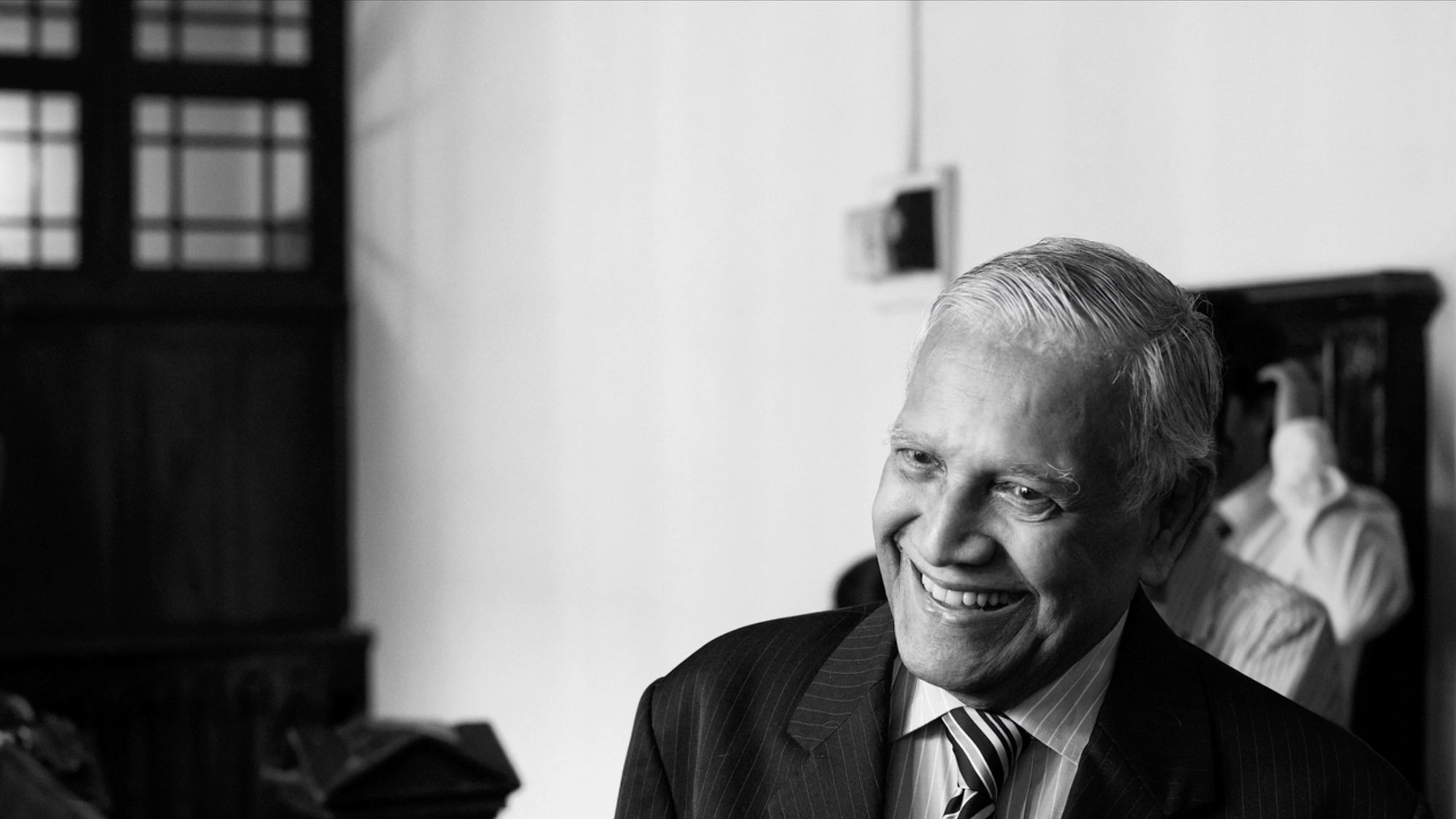The judge
Christopher Weeramantry
Judge Christopher Weeramantry is a former judge of the International Court of Justice and the senior-most retired judge in Sri Lanka. His campaign against nuclear weapons proliferation is famously captured in a dissenting judgement during his tenure at the ICJ, as well for respecting the environment. Taking inspiration from his elders and borrowing from the wisdom of world religions, the judge has been spreading his message of peace for decades.


Transcript and translations
Language
They polish the outside of the bowl of justice but the inside is full of injustice
I have been opposed right along to lawyers being too legalistic and too bookish. They have got to get their….Of course, they must learn the law that is in the books, but they cannot confine themselves to the law in the books. They must see the law in its overall perspective. The law in the context of philosophy, history, sociology, economics, psychology and so on. Then only do you see law in its overall perspective.
But law has right down the ages, been far too bookish. And that’s why, for example, in Christian legal system, slavery was permitted. Now, however, could that have been if the lawyers had risen to their responsibilities and said, “No Christian legal system can permit this”. They permitted imperialism. They permitted the exploitation of conquered territories. They permitted sending a man to Australia for lifelong servitude, for stealing a loaf of bread. Then later on in South Africa, Christian legal systems endorsed apartheid . Yes, endorsed apartheid.
And today legal systems are endorsing the nuclear weapon. There has got to be something wrong not only with the law, but with lawyers, particularly for not seeing the general principles behind the law. And that is very important, because if you look at this in the context of religion and philosophy, I think everybody should read Matthew 23, where Jesus has absolutely condemned the legalism of lawyers. He has said they are vipers.
In fact, he has used that word. When they only see the letter of the law and don’t see the general principles lying behind it. They polish the outside of the bowl of justice, but the inside of it is full of injustice. They want the highest places in public life. They exploit the poor widow whom they should be helping. There’s a whole catalogue of faults of the legal profession which Jesus refers to.
And Christian teaching talks about our duties towards our neighbour. Jesus amplified that in numerous ways. And one of the examples he gave was the Good Samaritan situation. If there is a person who is in distress, it is your duty to go to his assistance. And what do the Christian nations do? They have legal systems which are so legal and bookish that you can pass by a baby who is drowning in a bottle of water. You are a good citizen, you are doing your work, you are minding your own business, let the baby drown. That’s a different matter. And Christian legal systems permit that.
Now, Islamic law has the obligation of bidding unto good. It is your duty to do what you can to be of assistance, and many other legal systems have it. But now, in the common law, it is not at all clear that you are under a duty to go to the assistance of that child. And likewise, you get in every religion the same basic principles — the dignity of the human being, the duty of assistance to your neighbour, the unity of the human family, the peaceful settlement of disputes, the care of the environment, concern over future generations. And — I could go on — all basic principles which all the religions accept and many of the legal systems negative.
And I was so worried about this at one stage that I wrote a book called The Law in Crisis that’s a book to which I in which I looked at the legalism of the legal profession, how it was becoming very elitist and did not know enough about the problems of the people they should be serving. The legal system… lawyers had become a sort of special elitist group
And in those days I used to know Lord Denning because he took a lot of interest in my earlier books also. And Lord Denning wrote the foreword to that because he had very similar views. And he said in his forward that he hopes this book would bring us meaning the legal profession, to its censors. Those are Lord Denning’s words.
And as a result of that, in Australia, the legal profession took it up and the Victorian bar organised a thing called Law Week Victoria, which is now Law Week Australia. And over about a thousand events take place during Law Week where the lawyer tries to come closer to the layman and explain to him that the law is his friend and that the lawyer is there to help him.
I sought to introduce that in Sri Lanka too. It came very, very much later and now they have had three or four years of it, but I hope it prospers. But in Australia it has become a national institution.




Leave a comment